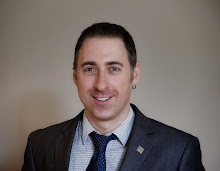 To round off our bonus questions, here are those from Conservative Senator Nancy Ruth, as well as excerpts from our extended conversation.
To round off our bonus questions, here are those from Conservative Senator Nancy Ruth, as well as excerpts from our extended conversation.Q: What was your highlight for the last session?
A: The Auditor General has committed to doing an audit of gender-based analysis of some federal departments in May, so for me that was the highlight of the last session.
Q: How are things with the Defence and Security Committee? You’d been doing work with the Human Rights committee, so how is it moving to this one?
A: I did ask what kind of internal change has happened since the Michelle Douglas case [from 1992] in terms of homophobia and monitoring and measuring that, and I’ve never had an answer. I did ask General Natynczyk, just days before he became king, why since they recruited at the Dome Stadium with helicopters and tanks and stuff, why we didn’t recruit at the Pride Parade in Toronto, and he didn’t know the answer to that and lo and behold they all turned out, and some people say they were just gorgeous and cute as hell. But there was no talk within the queer community in terms of what is the implication of having a military and Canada being at war—it was just the superficial ‘oh, isn’t he good looking?’ But I have seen the military’s report on their recruitment that day—they ran out of pamphlets by four o’clock in the afternoon and they were open until eleven. There was a huge number of people, and they ended up with thousand and thousands of names, and they had about two hundred and fifty recruitment possibilities.
Q: What was the low point of the last session for you?
A: The low point to all sessions for me is when we get into playing party politics and stupid little bickering and delays just because we’re playing games—it drives me crazy. It drives every woman crazy—it’s not the way women do business. You’ve got a job to do, you do it and then you go home. They don’t threaten to keep you there another week or whatever. I hate that stuff—that kind of political process just drives me up the wall, and every June and every December it’s the same. Once you get close to wanting to leave for your break, all the games start about a month before.
[Further to the Panel question]:
I have always wondered how it would impact Afghanis when they see that we legitimise [queer] soldiers—I don’t know the answer to it, but it’s something I’ve questioned. It would be interesting to ask, but I don’t know how you’d ever get an answer, if you asked the local Kandahar tribal ruler, what kind of answer would you get?
I also understand that there’s a woman officer in Afghanistan who is responsible for implementing United Nations Security Council Resolution 1325 which deals with women’s peace and security, so it’s her job to push that agenda in the external relations, outside the wire, so it’s probably good. So to guess what kind of impact it is to have GLBT troops would only be totally speculative. I’ve heard stories of other NATO troops coming to our and Australian chaplains where they’re afraid to go to their own.
I was on a naval frigate at the end of June, and one of the corridors I went down I saw a rainbow bow stuck on a file cabinet, so I inquired later and asked if there are many homosexuals on board? And this was in the one-up from the Ordinary Seaman’s level of dining rooms, and the answer in this great conviviality was “Oh, no, we gave him that because he’s so anti-queer, and that’s a joke.” But there was no further discussion of the issue. I can tell you, of the four days I spent on that naval frigate, I did not come out. I did not raise the issue—I was in enough trouble with whatever feelings I had after one of the big anti-aircraft guns went off, and someone said ‘What was that like for you, Senator?’ and I said ‘Well, I’m on a boat with 250 other people who have committed to going off to war and killing people—that’s new for me.’ And then I was not seen as sympathetic to the military. I’m not anti-, but it’s difficult for me. I wish nation states didn’t have these, didn’t have to solve problems through this business. So I was not going to ask queer questions except for the one time that I asked it at that level, and I don’t think I would have believed anything. Senior officers would have said anything because it was a big propaganda thing for them—they had Bob Rae and Alexa McDonough travelling back on the same boat to Halifax that I and [another senator] came up on.
On recruitment:
What I know of the recruitment in the military is that they recruit something like 6500 a year, and Canada’s having a hard time training these folks because all the people who train them, the staff sergeants are all off in Afghanistan. So that’s an issue—how do we stay at war and expand our military? But I also know that the number of people who are leaving the forces, through attrition of either they’ve come to their time, or they’re leaving for family life, is 5500, and it’s only a net gain of a thousand. That’s pretty horrific. Queers without children might be a very good group to recruit from, because the attrition, a lot of it is related to family from what I hear. Except for those who’ve done their twenty years’ service, or whatever.




No comments:
Post a Comment